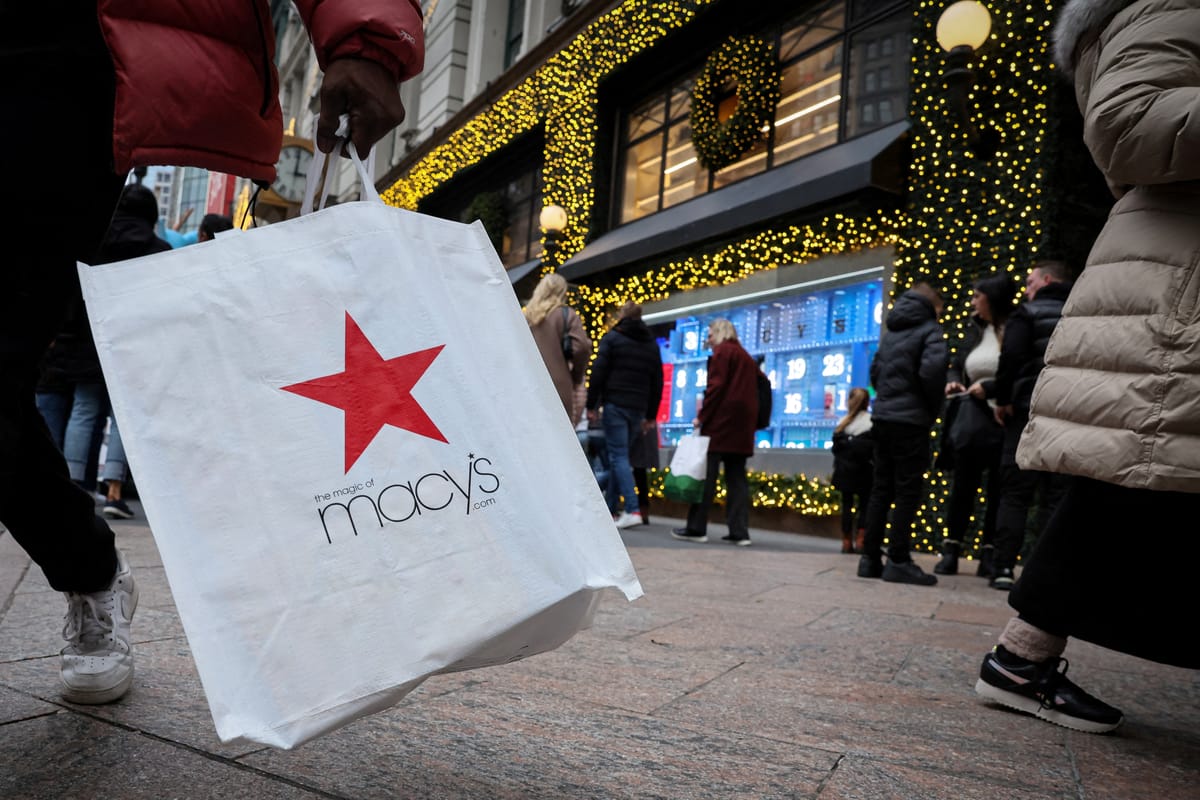What does the future look like for department stores in decline?
The rise of online shopping has already been changing the way that people shop.

A few minutes every morning is all you need.
Stay up to date on the world's Headlines and Human Stories. It's fun, it's factual, it's fluff-free.
The backstory: Department stores have long been associated with the middle class, anchoring shopping malls and offering a range of popular brands – not too cheap, but not quite “luxury” either. And they’ve been around for a long time. Macy’s has been around since 1858, offering everything from upscale fashion to premium beauty products. Other department stores like Sears and JCPenney were household names for decades. And in Asia, before shopping centers and malls started popping up, department stores drew crowds for their imported fashion and beauty merch all under one roof. One shopper in Asia described them to Channel News Asia as “the place to be” in their heyday.
But traditional department stores have been on a steady decline over the years. In 2011, US department stores had about 1.2 million employees, according to research firm IBISWorld. In 2020, that number fell to fewer than 700,000. Then came the pandemic. With that, a perfect storm was brewing.
More recently: The rise of online shopping has already been changing the way that people shop. Then, lockdowns during the pandemic kept people at home and shuttered retail stores – with the exception of those that sold groceries. So big box competitors, like Walmart and Target, were still seeing steady traffic. On top of that, inflation has persisted – even since the world opened back up post-pandemic – hitting the middle and lower class the hardest. Competition from online giants like Amazon and discount retailers like TJ Maxx have changed the retail landscape. Some big names, like Neiman Marcus and JCPenney ended up going bankrupt.
In Asia, department stores have also seen a decline in popularity, even in shopping destinations like Japan, Singapore and Hong Kong. Changing consumer habits and competition from fast fashion, malls and online stores have played a big role. Last November, Hong Kong’s high-end Harvey Nichols parent company announced that it would close its flagship store in Central after 18 years this coming March, as mainland visitors who used to be big spenders were less interested in “shop ‘til you drop” trips than before the pandemic. Luxury stores like Valentino, Burberry and LVMH's Tiffany also closed their doors in the city. Even though Hong Kong’s retail rents have dropped around 40% since the pandemic, they’re still some of the highest in Asia, which can be tough for businesses struggling to recover from the pandemic.
The development: Department stores will have to change their strategy to keep up with the evolving retail landscape. Macy’s announced this week that it’s shutting down 150 stores, while it will also invest more in its successful luxury brands, Bloomingdale’s and Bluemercury. Other stores are adapting by embracing the internet. Robinson’s in Singapore closed down early in 2021 but came back as an online-only store later that year. Department stores are also working to upgrade the shopping experience by investing more in technology, employee training and curated customer experiences. And one other key evolution is to attract younger shoppers by moving online and launching private labels and product collabs.
Key comments:
“We believe paring down the Macy’s store base to a more manageable (and profitable) size is prudent given the general structural shift towards online spending” and the shift away from department stores,” said Dana Telsey, a retail analyst, in a note to clients.
"The focus of visitors in Hong Kong has shifted from 'shop till you drop' to a greater desire for local culture and experience-based touring," said Rosanna Tang, an executive director at Cushman & Wakefield.
“100 per cent,” Robinson’s managing director Jordan Prainito wrote in an email to CNA when asked if pivoting online was a good move. “In a market where costs are surging in all aspects of business … launching an online store is more cost-effective than opening a new brick-and-mortar store.”
“Thirty years ago when luxury brands started pulling out of department stores because malls were opening, everyone said department stores were going to die. Later when fashion stores started pulling out, people said department stores were going to die. Well, we did not. We just evolved,” said BHG head of store operations Tarquin Yue to Channel News Asia.
“We want to appeal to not just our traditional customers but also new customers, especially younger ones,” said Yue. “So we try new brands, new digital tools and new ways of selling. At the end of the day, we want to make sure there’s something for everyone.”




Comments ()